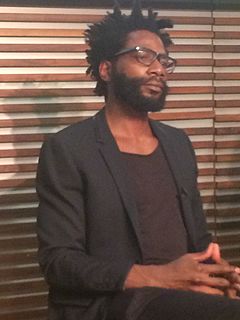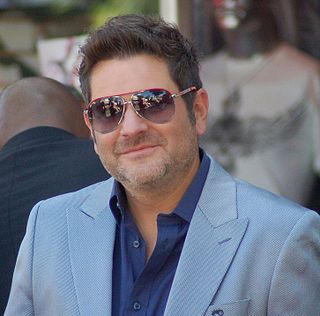A Quote by Michael Salu
Artists are often having very similar conversations across the various disciplines through which they choose to excel, but you rarely see them exist in the same pages or spaces.
Related Quotes
I'm so used to artists saying to me, "Listen, I'm going to have five pages done next week," and then three weeks later I'm phoning them, begging them for two pages. And Stuart [Immonen]is a guy who will promise you five pages and deliver six pages, and the six pages are even better than you could have ever imagined.
I love working with people and having them bring something to the table that I couldn't. I think one of my favourite artists to work with has been Kucka. She's Australian, too, and it's great working with her because we kind of have a very similar take on music, and we like a lot of the same stuff. We're not super-precious about ideas.
Through the years, through my own conversations, through my own weird obsessions, I think I have developed some very deep politics of political knowledge - and I think I have huge blind spots, too - which I have tried to build not necessarily through traditional interviews so much as it is conversations and a lot of research and reading.
In our age of individualism, we see computers as ways through which we can express our individuality. But the truth is that the computers are really good at spotting the very opposite. The computers can see how similar we are, and they then have the ability to agglomerate us together into groups that have the same behaviours.
I often notice how students can gain the capacity to use certain critical methodologies through engaging with very different texts - how a graphic novel about gentrification and an anthology about Hurricane Katrina and a journalistic account of war profiteering might all lead to very similar classroom conversations and critical engagement. I'm particularly interested in this when teaching law students who often resist reading interdisciplinary materials or materials they interpret as too theoretical.
What frustrates me is to see African-Americans behave as though what European-Americans say is worthwhile. It simply isn't. It's just some silly people who can make laws and have the power to enforce them. I'm often amazed at the conversations black people have about themselves. They ought to be having these conversations about white people. It's white people who are flawed and at fault.
In fact, most of the time, people with similar information, similar beliefs and similar apparent choices will choose similar actions. So if you want to know why someone does what they do, start with what they know, what they believe and where they came from. Dismissing actions we don't admire merely because we don't care enough to have empathy is rarely going to help us make the change we seek. It doesn't help us understand, and it creates a gulf that drives us apart.

































